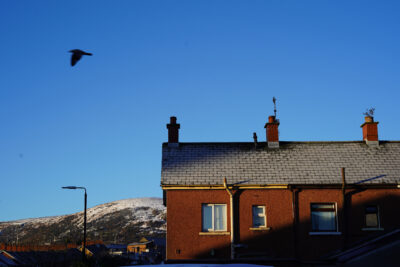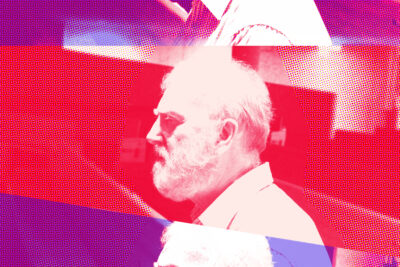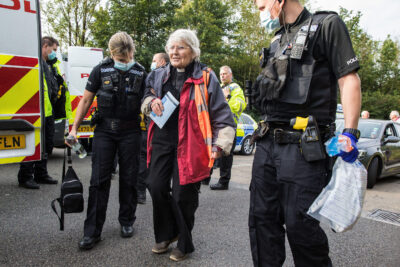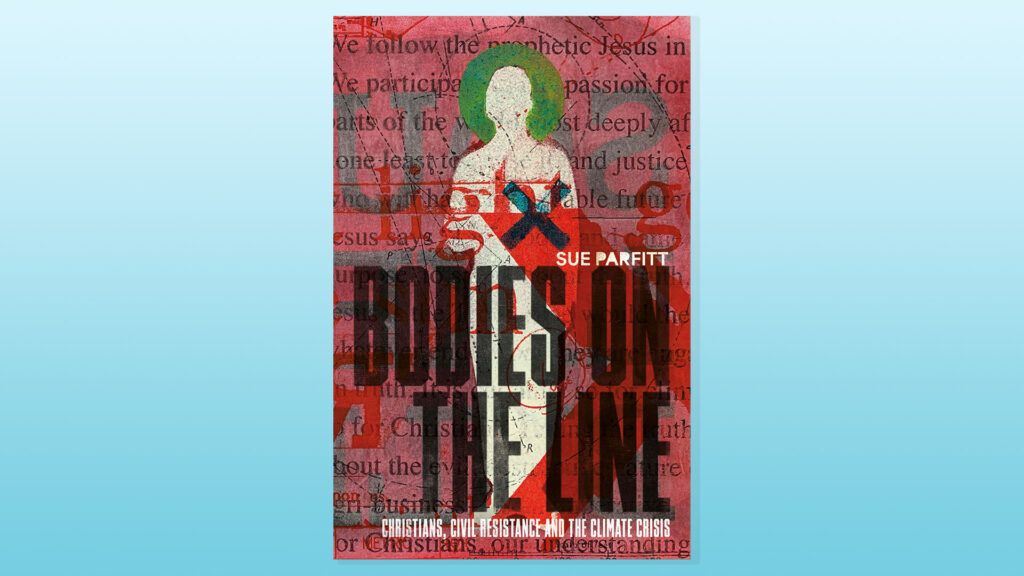The following is an extract from ‘Bodies on the Line: Christians, Civil Resistance and the Climate Crisis’, now available to pre-order via our partner imprint, Lab/ora Press.
Cover design by Shaun Loynds
“What you doin’ there, grandma?”
I had just fastened my high-visibility vest and sat down on the road. I gripped the end of the “Just Stop Oil” banner now stretching across half of the road, near Baker Street Underground station. My teammates were in place.
I looked up to see a short, grey-haired woman in her sixties, of south Asian origin.
“Dangerous sitting on the road, grandma,” she continued, not waiting for my answer. “Come on the pavement with me.”
“That’s kind,” I said, “but I’m where I need to be. Do you have children?” My friend became thoughtful, as though I had led her into a profoundly complex, maybe tragic area.
“Ah yes, grandma—but are they children any more? Quite old now, you see.” The motorists were beginning to honk their horns; pedestrians shouted abuse.
“Well maybe then you have grandchildren?” I tried to redirect the conversation back to the substantive point: “I’m doing it for them.” There was a pause—but not a very long one. Quite quickly my friend grasped what I was saying.
“You sit in the road for my grandchildren?” Her face was incredulous, but now wreathed in smiles. “Grandma, I’m proud of you!”
Some months earlier, we had been sitting on the M25 with signs stretched across the carriageway saying “Insulate Britain.” Messaging doesn’t get much clearer than that. But drivers in the line of trucks, vans and cars had edged up to our feet, and they were unimpressed. One of our team walked between the vehicles handing out leaflets, explaining why we were there.
A lorry driver towered above us, shouting at the leaflet distributor and the rest of us. The expletives were delivered at high volume, but then gradually began to lessen. We could see that our teammate was listening to him and speaking with him. After about five minutes, the lorry driver suddenly jumped out of his cab and shook our teammate’s hand. “I get it mate, I get it. You’re doing it for my kids!”
In the desperate times in which we live, many Christians—as well as those of other faiths and none—feel themselves increasingly called to “cross the line” into acts of law-breaking. In the light of the climate emergency, Christians are engaging in civil disobedience: against the government, the fossil fuel industry, the media, the courts complicit with government inaction; and against the Church itself, when it is shying away from giving a needful prophetic lead to the world.
We undertake this because we believe that this is the only way for us to achieve the radical shifts required in government policy—or, as far as Christians are concerned, to adequately obey what God requires of us, for the Kingdom to be established on earth in this time of climate emergency. It is to this Christian calling that this book is devoted: to explain why I—a retired psychotherapist and octogenarian priest —have been sitting in the road, along with many others, and to call others to consider their own response.
As we traverse the twenty-first century, it has become clear that we are confronted by the greatest crisis that the planet and its inhabitants have ever had to face.We are facing an existential crisis, the sixth mass extinction event on planet Earth: the only one to have occurred since the advent of humanity.
Moreover, all other lesser crises have become entwined and bound up with the climate emergency. Climate change is causing increases in tropical diseases; climate change is causing and exacerbating extremes of wealth and poverty; climate change is causing global temperatures to rise so that large tracts of the Earth’s surface are becoming uninhabitable, leading to an exponential rise in the migration of peoples in search of somewhere to grow food and raise children.
The COVID-19 pandemic created a severe disruption throughout the world; it gave us a foretaste of what social breakdown will be like as the climate crisis worsens. The pandemic revealed, as never before, immense social and economic inequalities at every level of society—from local communities to international relationships—and the obscene year-on-year increase in the wealth of the very rich. These inequalities, too, negatively impact the climate. Covid may have interrupted the conversation on the climate emergency, but it also provided a circuit breaker in terms of “business as usual,” enabling people all over the world to experience something of what life could be like without its addiction to fossil fuels. This period presented us with many difficulties, but it also gave us opportunities to imagine a new future.
Nonetheless, governments seem unable to act as though the house is already on fire. Not only is this true of their destructive actions in continuing to support the fossil fuel industry, but also by their inactions. Inaction is harder to identify, and makes protest more complicated perhaps than the protest against weapons of mass destruction which has absorbed much of the energy of activists both in Europe and the USA until recently.
If ever there was a moment in the history of humankind for the followers of Jesus to step up to the plate and rise to our responsibilities—this, I want to argue, is surely it. And indeed, this impending climate catastrophe, already leading to the breakdown of social structures in some parts of the developing world, has unsurprisingly inspired acts of nonviolent civil disobedience in response.
*
Why would a Christian break the law? Fundamentally, because we are following Jesus. Jesus put justice as an expression of love at the heart of His ministry and mission. His love and compassion for His people—and for all people—drew Him inexorably into a radical search for justice. Always nonviolent—because violence is incompatible with love—Jesus is our model for every expression of our Christian faith, and our model for resisting the evil and the injustices we are confronted with today.
We follow the prophetic Jesus in seeking God’s will for the creation. We participate in His passion for justice: justice for those parts of the world most deeply affected by climate change yet having done least to cause it, and justice for the generations to come who will have no liveable future unless we act. And we follow Him when necessary into acts of civil disobedience.
Jesus says “I was born and came into the world for this one purpose, to speak about the truth”(John 18:37). Indeed, we say Jesus is the Truth. One would therefore expect His followers, in whatever endeavour they are engaged, to place a very high value on truth. It is certainly so for climate crisis resisters and especially so for Christians. Telling the truth about the climate crisis—and about the evil, destructive nature of the fossil fuel industry and agri-business—is an imperative.
For Christians, our understanding of the climate crisis, and what we decide to do about it, needs to be filtered through the lens of our Christian faith and an understanding of Jesus—His priorities, His mission and His call to His followers to be active in the world. This will lead us to ask what it is that God is calling His disciples to do in this time of climate crisis, now.
Pre-order ‘Bodies on the Line’ here — ships on or before 24th August.
Related Stories

Inner State: Passionist Life in North Belfast
North Belfast is a community that has seen immense trauma over the past century – defined by political forces beyond its control.
May 30 2024

To Illumine the Mind: the Catholic diaspora in Paris
In Paris, Martin Coffey leads a church overflowing with working class immigrants. The picture of religion in France, he tells us, is not what you think.
Mar 01 2024

Positive Faith present a World Aids Day service, ‘The Reason for Hope’
Reflections, music and scripture as well as opportunities for sharing on this World Aids Day online service.
Dec 01 2023


